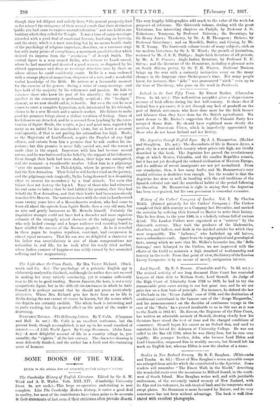Lord Stowell. By E. S. Roscoe. (Constable and Co. 7s.
Gd. not.)— The revived activity of our long dormant Prize Court has reminded lawyers of their debt to William Scott, Lord Stowell. As Judge of the High Court of Admiralty from 1798 to 1828, he had to try the innumerable prize cases arising in our last great war, and he set our prize law on a firm basis of principle. For instance, he defined the law of blockade in the ` Vrouw Judith' case of 1799, and the destination of conditional contraband in the famous case of the Jonge Margaretha; and his pronouncemen t on the doctrine of continuous voyage in the case of the ' Maria ' ha s proved invaluable to us in this war as it was to the North in 1861-65, Mr. Roscoe, the Registrar of the Prize Court, has written an admirable memoir of Stowell, showing clearly how hi's decisions have stood the to at of time and the changed conditions of commerce. Stowell began his career as an Oxford don, and used to entertain his friend Dr. Johnson at University College. He was not called to the Bar till 1780, when lie was thirty-four, but he rose very rapidly. His younger brother, John, who became Lord Eldon and Lord Chancellor, surpassed him in worldly success, but Stowell left his mark on English law, whereas Eldon is now the shadow of a name.


































 Previous page
Previous page